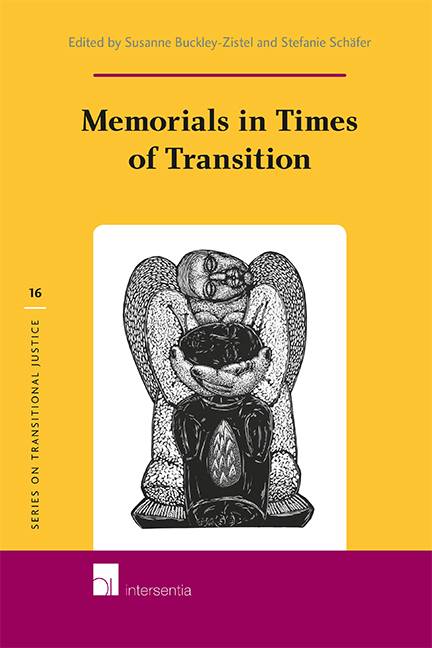Chapter 6 - Manicured Nails but Shackled Hands? The Representation of Women in Northern Ireland’s Post-conflict Memory
Published online by Cambridge University Press: 16 December 2020
Summary
This chapter examines the memorialisation of women in a transitional society using commemoration of women through memorials of the most recent Northern Ireland ‘Troubles’ as a primary case study. In divided societies, such as Northern Ireland, memorialisation not only incorporates notions of mourning and symbolic reparation, but is intimately related to the partisan construction of communal political identities and the creation of narratives that seek variously to legitimate prior conflict and underwrite peace. Furthermore, it has been argued that representation and memory making associated strongly with ethno-national identities tends to squeeze out narratives and claims making based around gender. This chapter will interrogate these processes of commemoration and memory making along two axes; the description and conceptualisation of symbolic tropes and motifs depicting women; and the role and representation of women in memorial practice. It is also engaged with constructed hierarchies of victimhood and lionisation as projected by the physical memorials, which may meld notions of masculinity with a martialised femininity, and offer insights into processes of deliberate or indirect amnesia in the memorialisation of women in a divided society. A central argument will be that in contrast to many other regions, a fairly prolific and nuanced memorialisation of women has taken place in Northern Ireland, albeit within the compartmentalised sector of Irish Republican political or paramilitary activism. Processes of amnesia and exclusion however still apply in the representation of women who do not easily fit these roles.
This chapter will address the ideological values and social purposes behind the memory sites; the degree to which language and symbolism attached to the memory sites are traditional, innovative or problematic, and the ritual use of sites as a means of connecting audiences to their particular narratives. An overarching question will consider the degree to which memorialisation of this type aids or impinges processes of transitional justice in a divided society – specifically how it can help memorialisation engage with issues of gendered experience and the politicisation of the private sphere. There is a tension within this form of memorialisation – between the vernacularised representation of notions of rights, equality and political agency on one hand and the reproduction of a memorial template which traditionally privileges partisan, nationalistic and often militaristic forms.
- Type
- Chapter
- Information
- Memorials in Times of Transition , pp. 149 - 170Publisher: IntersentiaPrint publication year: 2014
- 2
- Cited by



